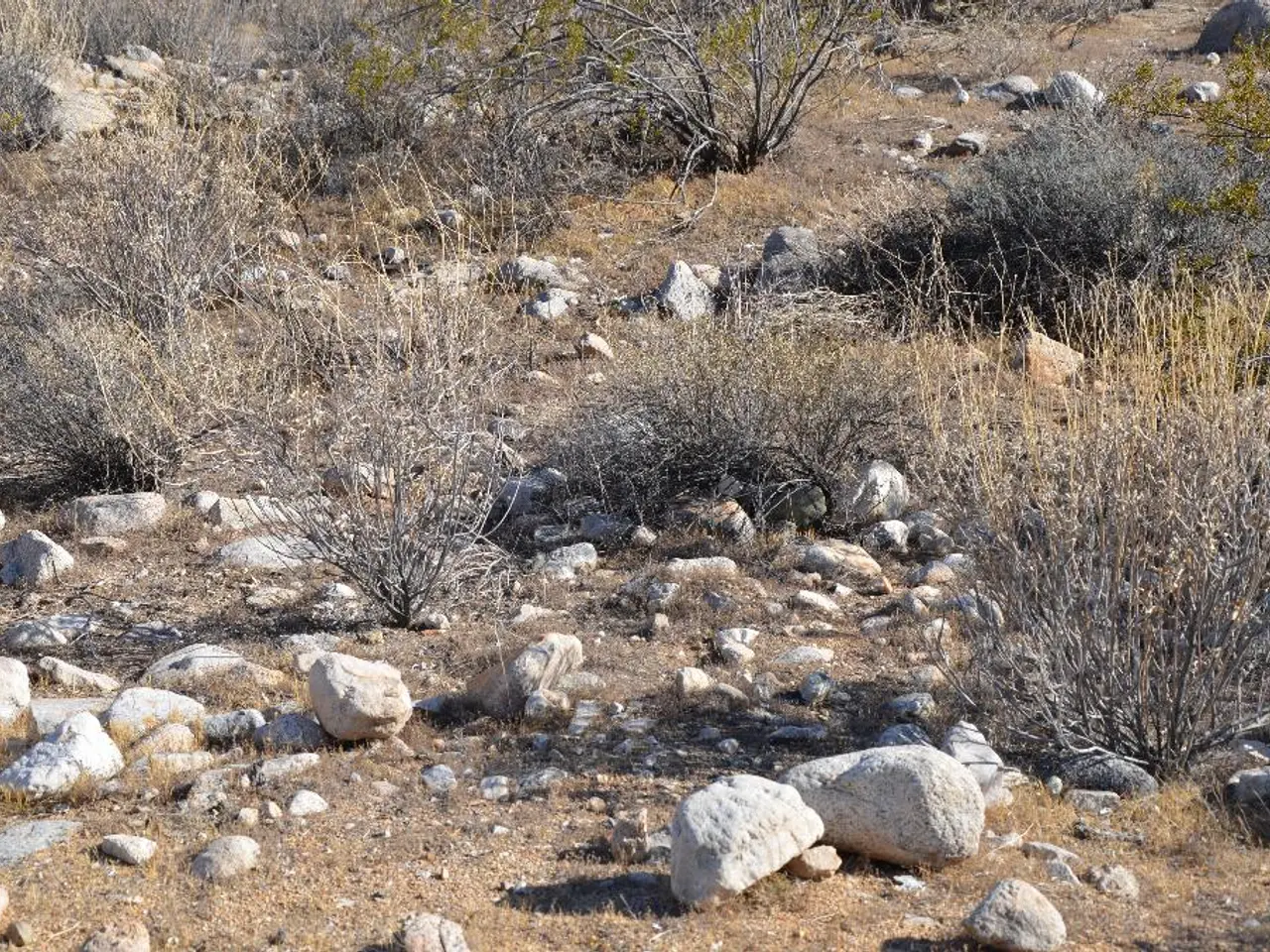Field-Based Learning Merges with Research: Unique Experience Amidst Death Valley's Desolation
In a unique blend of academia and adventure, students from Princeton University embarked on a field trip to Death Valley National Park, where they delved into independent research projects as part of their coursework.
The journey began with a day of geo-tourism, exploring notable geological sites in Death Valley. The students, led by their professor, visited iconic locations such as Dante's View, offering a breathtaking bird's eye view of the entire park from 5500 feet, and the Panamint Mountains, formed by tectonic uplift millions of years ago.
At Mosaic Canyon, the grand, imposing canyon walls revealed a fascinating history. The students discovered that the cap carbonates making up the canyon walls were deposited after the "Snowball Earth" episode 600 million years ago. Meanwhile, at Zabriskie Point, the students determined that the rocks were lacustrian (lake) sediments deposited by an ancient lake.
The research project spanned from fieldwork to labwork to data analysis to writing. After collecting the rock samples in the field, they were transported back to Princeton. Upon arrival, the samples were cut with a rock saw to a specific specification. The current step is waiting for the thin sections to be made, little, 30-micron-thick slices of rock for microscopic analysis.
Princeton University offers several courses that incorporate elements of independent research work. For instance, the class GEO/WRI 201 offers opportunities for scientific research and writing, while the class GEO 372 (Rocks!) conducted field research in Death Valley National Park.
The research study in the class provides an incredible experience for students, allowing them to perform a research study in a class setting. One such student, Advik Eswaran, is having a lot of fun while doing the research project.
In addition to the geology class, Princeton offers other opportunities for independent research work. Junior Independent Work (JIW) in the Department of Economics involves independent research on topics such as economic policy or labor market dynamics. Selected JIW students present their research at an annual forum, showcasing work ranging from minimum wage effects to AI impact on HR hiring processes.
ProCES (Princeton Community-Engaged Scholarship) Courses actively integrate community perspectives with academic inquiry, often requiring engagement with community organizations or real-world sites. These courses emphasize community-engaged learning, where students conduct research directly addressing societal challenges and analyze data or qualitative inputs derived from community interactions.
The History Department Undergraduate Research supports independent work such as senior theses or research papers that involve archival or field research. Students receive guidance on planning research trips, managing sources, and writing scholarly histories. They conduct primary source analysis, including working with rare books or foreign language materials, and navigate historical evidence with scholarly skepticism.
In these courses, students typically begin with defining a research question or project scope, often with faculty mentorship. Field research may involve data collection through surveys, interviews, archival work, or direct community engagement depending on the discipline. Analytical methods vary but include qualitative analysis, quantitative data evaluation, and synthesis of secondary literature. Students then write detailed reports or theses and often present their findings in forums or community settings, receiving feedback to refine their interpretations.
Overall, Princeton’s curriculum encourages hands-on, independent scholarship by embedding research projects within courses and through opportunities like JIW and ProCES, where students actively gather, evaluate, and interpret diverse types of data in academic and real-world settings.
In the course GEO/WRI 201, students are given the opportunity to conduct independent research in the field of science, specifically focusing on environmental-science. As part of this course, they may work on a junior paper, delving into research projects that involve fieldwork, labwork, data analysis, and writing.
Furthermore, students in the Department of Economics at Princeton University can engage in Junior Independent Work (JIW), where they can conduct independent research on topics related to economic policy or labor market dynamics. These students often present their research at an annual forum, showcasing the results of their independent work, which may range from analyzing minimum wage effects to the impact of AI on HR hiring processes.




